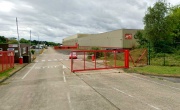New report calls for action on food loss and waste
 A new report from the Food and Agriculture Organisation (FAO) of the UN reiterates claims that one-third of the food produced for human consumption globally is lost or wasted along the food chain.
A new report from the Food and Agriculture Organisation (FAO) of the UN reiterates claims that one-third of the food produced for human consumption globally is lost or wasted along the food chain.
The report, Food losses and waste in the context of sustainable food systems, is being officially launched this afternoon (3 July) by the High Level Panel of Experts on Food Security and Nutrition (HLPE), and highlights the causes and potential solutions to the global levels of food loss and waste (FLW).
It suggests that action is ‘essential to improve food security and to reduce the environmental footprint of food systems’.
It also suggests that the large amount of existing conflicted data is ‘a huge barrier’ to understanding the causes of FLW and potential solutions. The report, therefore, strongly calls for the development of global protocols to measure FLW.
In the foreword to the report, Per Pinstrup-Anderson, Chair of the Steering Committee of HLPE, says: “The aim of this report, given the diversity of contexts, is to help all concerned actors to reduce food losses and waste by identifying the causes and potential solutions that may be implemented, alone or in a coordinated way, by the relevant actors in the food system”.
The report recommends that action should be taken throughout different sections of the food chain, from the public and private sectors, civil society, individual producers, wholesalers, retailers and consumers.
This is the eighth report that the HLPE has released to date, and was undertaken in response to a request from the Committee on World Food Security (CFS) in 2012.
The negative impacts of FLW
Food loss and waste have negative impacts on a global and local scale, from the long-term environmental effects of unsustainable use of natural resources down to consumers who have to deal with rising prices.
While there may be ‘thousands’ of causes of FLW along the food chain, from poor harvest scheduling and timing to issues with food transport, the report emphasises the need to consider any action at one specific stage not in isolation but as part of a whole in order to begin to provide solutions.
Key recommendations for solutions
Some of the key recommendations put forward in the report to tackle food loss and waste include:
- considering the causes of food losses and waste ‘not as an accident but as an integral part of food systems’ in order to approach solutions;
- improving data collection and knowledge sharing about food loss and waste;
- improving the coordination of policies and strategies set to tackle FLW;
- modifying consumer behaviour through direct communication and raising awareness about the importance of reducing food waste, by encouraging ‘doggy bag’ practice at restaurants, for example;
- supporting the food industry and retailers to improve the clarity of food date labeling and advice on food storage; and
- investing in the food processing infrastructure.
Global food waste scandal
The release of HLPE’s report confirms the growing concern about the issue of global food waste.
The Institution of Mechanical Engineers released its 'Waste Not, Want Not' report last year, which claimed that 30 to 50 per cent of food produced is never consumed by humans, and campaign group This is Rubbish followed with a report, 'Counting What Matters', claiming that the food industry is responsible for more than half of the 18-20 million tonnes of food thought to be wasted every year in the UK.
Government institutions are also investigating the issue, with the European RESFOOD project ‘developing innovative technologies with the aim of boosting resource efficiency and safety throughout the food chain’.
Read the HLPE’s report in full. 






